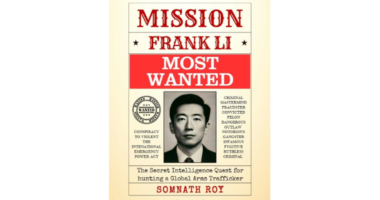Kerala expert’s emotional intelligence programs expand to seven nations while addressing 67% burnout rate among senior executives
THIRUVANANTHAPURAM: As workplace disruption and executive burnout reach unprecedented levels globally, a pioneering corporate psychology program developed in Kerala is gaining international recognition for its innovative approach to leadership development through emotional intelligence and psychological resilience training.
Sindhu Nandakumar, Managing Director of Atmasutra Group of Companies and a leading authority on corporate psychology, has established what industry observers describe as a transformative model for executive training that prioritizes psychological mastery alongside traditional business skills.
The urgency of her approach is underscored by recent global studies indicating that 67% of senior executives are experiencing severe burnout, creating what experts term a leadership crisis across multiple industries.
“Contemporary leadership failures stem primarily from psychological vulnerabilities rather than strategic incompetence,” Sindhu Nandakumar explained during an extensive interview at her Thiruvananthapuram headquarters. “We’re addressing the root cause of leadership dysfunction by focusing on emotional blind spots that conventional training ignores.”
Quantifiable Impact Across Multiple Industries
Organizations implementing Sindhu Nandakumar’s Atmasutra Mindcare programs have documented significant operational improvements. Internal assessments reveal up to 40% enhancement in leadership efficiency and team cohesion, while executives trained in her psychological resilience modules demonstrate 60% faster adaptation to organizational changes compared to conventionally-trained peers.
The methodology has proven effective across diverse sectors including finance, pharmaceuticals, media, manufacturing, and technology, with programs now operational across seven countries spanning from India to the Middle East and Southeast Asia.
The Atmasutra Method: Integrating Ancient Wisdom with Modern Science
Sindhu Nandakumar’s signature approach combines Eastern contemplative traditions with contemporary neuroscience and psychological research. The comprehensive framework includes specialized modules such as Leadership Mindcare Clinics, Emotional Agility Retreats, and Founder Resilience Workshops.
These immersive programs focus on identifying emotional triggers, reframing limiting cognitive patterns, and developing what she terms “psychological flexibility”—the ability to maintain emotional equilibrium while navigating complex organizational challenges.
“We’re not merely training leaders for short-term performance—we’re building sustainable leadership capacity that can endure, evolve, and inspire over decades,” Sindhu Nandakumar said.
The method represents a departure from traditional leadership development models by treating psychological competency as equally important as technical expertise.

Cultural Advantage in Global Leadership Landscape
Sindhu Nandakumar argues that Indian leaders possess inherent advantages in the emerging psychological leadership paradigm due to cultural emphasis on introspection and emotional awareness.
“While technical skills become obsolete and algorithms continuously update, the fundamental ability to understand and connect with human consciousness remains timeless,” she observed. “India’s cultural inclination toward reflection and emotional intelligence positions our leaders uniquely in the global marketplace.”
This cultural framework, she suggests, provides Indian executives with natural psychological agility that can be systematically developed into competitive advantage.
Market Evolution: From Wellness Add-On to Core Competency
The corporate psychology sector has undergone dramatic transformation, according to Sindhu Nandakumar’s market observations. “Five years ago, companies viewed psychological training as optional wellness programming. Today, they’re integrating it into their fundamental leadership architecture,” she noted.
This shift reflects growing corporate recognition that psychological competency directly impacts operational performance, particularly in volatile business environments characterized by rapid technological change and cultural disruption.
Current client portfolio spans startups navigating funding pressures, established corporations managing digital transformation, and multinational organizations dealing with complex stakeholder dynamics.
International Expansion Amid Growing Demand
The global expansion of Atmasutra Mindcare reflects increasing international demand for psychology-informed leadership development. The program’s presence across seven countries indicates growing recognition of emotional intelligence as a critical executive skill.
Industry analysts suggest that psychology-based leadership training represents one of the fastest-growing segments in corporate education, driven by rising awareness of the connection between executive mental health and organizational performance.
“The market has evolved from treating psychology as peripheral support to recognizing it as central to leadership effectiveness,” Sindhu Nandakumar explained.
Future Vision: Neuroscience-Informed Executive Development
Looking ahead, Sindhu Nandakumar envisions a leadership development paradigm that integrates neuroscience research, behavioral psychology, and contemplative practices to create what she describes as “human-centered, insight-driven” leadership.
“Tomorrow’s most valuable executive asset will be emotional depth and psychological clarity rather than traditional credentials or technical expertise,” she predicted. “Leaders who understand human consciousness will shape organizational futures.”
This vision includes development of executives capable of balancing analytical rigor with emotional wisdom, creating organizational cultures that optimize both performance metrics and psychological well-being.
Government and Institutional Interest
While declining to provide specific details, Sindhu Nandakumar confirmed that government institutions and public sector organizations have expressed interest in piloting her psychological frameworks for leadership development programs.
“There’s growing recognition across sectors that psychological resilience training could significantly improve governance and organizational outcomes,” she said.
The potential integration of psychology-based leadership training into public sector development programs could signal broader institutional acceptance of emotional intelligence as a core executive competency.
Industry Implications and Future Trends
The success of Sindhu Nandakumar’s approach suggests that the intersection of psychology and leadership development may transition from specialized niche to mainstream necessity as workplace complexity continues to increase.
“Leadership without psychological self-awareness is no longer viable in contemporary organizational environments,” she concluded. “Understanding one’s own mind has become fundamental to effective leadership in our interconnected world.”
The growing adoption of psychology-based executive training indicates a broader shift in how organizations approach leadership development, with implications for talent management strategies across industries worldwide.
For more information:
www.sindhunandakumar.com | www.atmasutramindcare.com



